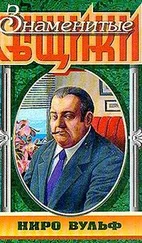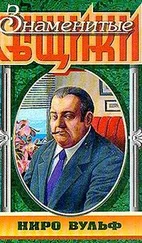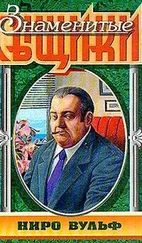Рекс Стаут - How Like a God
Здесь есть возможность читать онлайн «Рекс Стаут - How Like a God» весь текст электронной книги совершенно бесплатно (целиком полную версию без сокращений). В некоторых случаях можно слушать аудио, скачать через торрент в формате fb2 и присутствует краткое содержание. Город: Chicago, Год выпуска: 1949, Издательство: Best Publications, Жанр: Детектив, на английском языке. Описание произведения, (предисловие) а так же отзывы посетителей доступны на портале библиотеки ЛибКат.
- Название:How Like a God
- Автор:
- Издательство:Best Publications
- Жанр:
- Год:1949
- Город:Chicago
- ISBN:нет данных
- Рейтинг книги:4 / 5. Голосов: 1
-
Избранное:Добавить в избранное
- Отзывы:
-
Ваша оценка:
- 80
- 1
- 2
- 3
- 4
- 5
How Like a God: краткое содержание, описание и аннотация
Предлагаем к чтению аннотацию, описание, краткое содержание или предисловие (зависит от того, что написал сам автор книги «How Like a God»). Если вы не нашли необходимую информацию о книге — напишите в комментариях, мы постараемся отыскать её.
How Like a God — читать онлайн бесплатно полную книгу (весь текст) целиком
Ниже представлен текст книги, разбитый по страницам. Система сохранения места последней прочитанной страницы, позволяет с удобством читать онлайн бесплатно книгу «How Like a God», без необходимости каждый раз заново искать на чём Вы остановились. Поставьте закладку, и сможете в любой момент перейти на страницу, на которой закончили чтение.
Интервал:
Закладка:
Rex Stout
How Like a God

I
He had closed the door carefully, silently, behind him, and was in the dim hall with his foot on the first step of the familiar stairs. His left hand clutched the key to the apartment two flights up; his right hand, in the pocket of his overcoat, was closed around the butt of the revolver. Yes, here I am, he thought, and how absurd! He felt that if he had ever known anything in his life he knew that he would not go up the stairs, unlock the door, and pull the trigger of the revolver.
She would probably be sitting in the blue chair with many cushions, reading; so he had often found her.
His mind seemed suddenly clear and intolerably full, like a gigantic switchboard, with pegs in all the holes at once and every wire humming with an unwonted and monstrous burden. A vast intricacy of reasons, arguments, proofs — you are timid and vengeless, you are cautious and would be safe, you would be lost even if safe, you are futile, silly, evil, petty, absurd — he could not have spoken in all his years the limitless network of appeals, facts, memories, that darted at him and through him as his foot sought the third step. He heard them all...
You are timid and vengeless.
When you first saw that word you were in short pants and numberless words in the books you read were strange and thrilling. Many of them have long since been forgotten, many more have lost their savor; but this word has escaped both fates through the verses you wrote, using it in the first line of each stanza. Afraid of your father’s and mother’s good-natured criticism, you showed them only to Mrs. Davis, the Sunday-school teacher.
“Vengeless,” she said, “is not used for men and women, only for impersonal things.”
That was before she invited you to her house in the afternoon, but already she was smiling at you. You were mortified at having misused the word and tore the verses up.
That was timid, and you hated yourself for it without really knowing it. The most blatant and poignant timidity of those young Ohio days, though, was when, with the boys down on the lot below Elm Street of a summer afternoon, you would try to steal second base. Why did you ever try it? That was peculiarly not your dish. You always knew that and yet forever you tried it.
But during this period that vague and oppressive timidity had its usual seat at home, at the little house on Cooper Street. Probably its unknown focus was your sister Jane, for your father and mother were from first to last nebulous and ill-defined; they seemed to float around you; and your other sisters and brothers existed only as pestiferous facts. Larry was only five, and Margaret and Rose were being born or at least were scarcely out of the cradle.
With your father there was timidity too, but as you see now perfumed with contempt. The first dream you dreamt that was in touch with reality came when his business and his health lost step together and you were shocked and pleased to find yourself taken seriously as a member of the family.
“Bill, it’s up to you,” said your father, after your mother’s tears were dried and the younger children had been sent from the room. “Doc’s crazy. I’ll be at it again in a month. You’re nineteen, and big enough to handle two real drug stores, let alone that little hole in the wall. Nadel can do the prescriptions, and with all the afternoons and Saturdays you’ve had there...”
“He can’t do it,” said Jane, home for the summer from Northwestern. No, she was through then, and was teaching Latin in the high school. “It’s not your line, and anyway you’re too young and it’s not fair. I’m the one for it, and Dad will have to let me.”
Your father, curiously persistent, had Mr. Bishop come in and empowered you to sign checks, but no one was fooled by that empty symbol except your mother. You resented Jane bitterly as she competently kept patent medicine salesmen where they belonged while you mixed ice cream sodas and washed the glasses. It was then that Mrs. Davis went to Cleveland — ah, you still wonder, how much of that did Jane know? At all events, the whole world was dark. But your father, to the pleased but professionally discomfited surprise of Doc Whateley, pulled on his trousers again, “slightly disfigured but still in the ring” as the editor of the weekly Mail and Courier put it, and you went off for your second year at college at Westover.
That was the year that saw your legend created and made you a man of mark. You have never understood that episode; it was an astonishing contradiction of all timidities and inadequacies. What would have happened and where would you be now if Mrs. Moran had not done your washing and sent little Millicent to fetch it, and deliver it, twice a week? It was on her second or third visit that you became intensely aware of that pale child. It was indefinable and incredible; she was exactly ten, half your own age, pallid and scarcely alive, barely literate...
It must have been three months later that there happened to be a crowd in your room when she came. By then you were always making sure to have candy for her and to be always there when she arrived. That day you didn’t want to give her the candy with the other fellows present, and without even a glance she somehow let you know that she understood perfectly and sympathized.
When she had gone, Dick Carr, known as the Mule, made some remark, and you called him a name. The words wasn’t so bad, among friends, but your tone and attitude made the others gasp. The Mule, a seasoned halfback with nothing left to prove, was contemptuously surprised but undisturbed. Blindly you slapped him in the face.
There wasn’t a lot of excitement at first because it was taken for granted that the Mule would hit you once and then watch you bleed. The Mule certainly did hit you and you certainly bled; but long after you were logically extinct you still poked your bruised fists somehow at that gigantic shape, which must be annihilated before you went down to stay.
Kept in bed for a week, you were visited on the third day by the Mule himself; and not long after that you began to call him Dick instead of Mule, specifically at his own request, and thus became a man of note not only for having stood up to the Mule, but for being chosen as chief intimate of by far the richest man in the college.
All the spring semester you were inseparable, and when you went home in June you had promised to visit him during the summer. You had not been in Cleveland twenty-four hours before Mrs. Davis was entirely forgotten.
You fairly trembled with timidity that first afternoon in the garden when Dick introduced you to his sister Erma. Yes, you were always timid with Erma Carr. Partly perhaps it was the house, the servants, the motor cars, the glistening fountains, the clothes-closets lined with fragrant cedar? Perhaps, but Erma herself was enough.
By the end of the third week she asked you to marry her. Yes, she did, though she may have left the question marks to you. How many times you have wondered why Erma picked you out of all that were offered to her. It is amusing, your irritated concentration for more than twenty years on that trifling why.
You were driving with Erma along the lake shore the afternoon the telegram came, and when you returned it was waiting for you. When you got home, after midnight, your father was already dead. The question of the future arose, and with the perfection of tact Jane considered and felt the difficulties of your position.
“You’ve got to finish college. I can run the store for a couple of years; it’ll pay better than ever; you’ll see. Please, Bill, you’ve simply got to finish.”
Читать дальшеИнтервал:
Закладка:
Похожие книги на «How Like a God»
Представляем Вашему вниманию похожие книги на «How Like a God» списком для выбора. Мы отобрали схожую по названию и смыслу литературу в надежде предоставить читателям больше вариантов отыскать новые, интересные, ещё непрочитанные произведения.
Обсуждение, отзывы о книге «How Like a God» и просто собственные мнения читателей. Оставьте ваши комментарии, напишите, что Вы думаете о произведении, его смысле или главных героях. Укажите что конкретно понравилось, а что нет, и почему Вы так считаете.








![Рекс Стаут - Лига перепуганных мужчин [litres]](/books/394342/reks-staut-liga-perepugannyh-muzhchin-litres-thumb.webp)